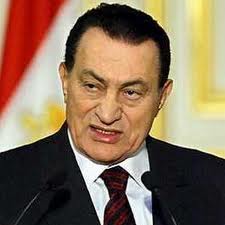CSMS Magazine Staff Writer
News Analysis
The Mubarak regime is clearly dying, and most experts agree to this. The question is now: Who will replace him? It is not easy to come up with the answer, and even if we knew the answer, will the replacer be the response that will satisfy the people’s demands? Probably not, for history dictates us that successful revolutions are the ones that bring to bear the demands that spiked them in the first place. This cannot be achieved unless whoever or whatever the force that is behind the movement is an organized force.
The problem with democratic upheavals is that they are always successful at getting rid of the order of the day, but not strong enough to seize power, and without the control of power, people’s demands are most likely to be exploited by parasitic politicians for their own strategic interests. We have seen it all too often. In Tunisia, despite the abrupt departure of Ben Ali, the struggle continues daily precisely because no demands have been met. The government is still controlled by despised figures of the previous regime.
In other places like in Haiti, for instance, twenty-five years of democratic struggles has produced very little. If anything, the raw misery ushered as a results of failed policies by previous governments following the fall of Baby Doc in 1986 have contributed to his return—a classic manifestation of the disappointing scope of unorganized people’s movement.
Having said that, however, no one should conclude that only arm struggles are the ultimate guarantors of a people’s desire for change that will better their lives. An organized popular uprising, even without a revolutionary army, can produce the desired end. Entrenched malicious forces can be kept at bay if there is a clear and channeled vision as to where the movement is going.
The massive demonstrations now engulfing the Arab world are most likely to succeed in getting rid of despotic governments, but fail in reaching their golden mean. Countries like Jordan, Saudi Arabia may face the same situation. In proxy politics, the stake is too high for the major players. When it becomes clear that the circumstantial ally can no longer hold, the strategy is to dump him in a blur before “we lose it all.” It is good for the upper class, it is good for the established military and it is good the foreign interests.
Steam Pollack, a fellow from the Brooking Institute, claims that there are no viable alternative now to Mubarak, expect for Mohamed Al Baradei, who can be used as a transitional figure until a more compliant and acceptable leader emerges. Of course, Al Baradei is the former head of the United Nations nuclear watchdog, extremely popular among western governments, especially with his role in dealing with the Iranian nuclear program.
Other figures in the movement like the Muslim Brotherhood or the Islamic Group, though, not strongly enough to take over the movement, constitute a major headache or the United States and Israel if these two organizations emerge to become the prime leaders.
This scenario appears unlikely because the Egyptian military whose core of its officers are western trained will never settle for this. This assertion was also felt by Marco Veciencino, CNN political analysts. It was the same results we had in Algeria in early 2000 when the Islamic Salvation Front won free and fair elections but prevented from taking over power. The results were utterly bloody.
So, the call now is to reach a speedy consensus, creating a semblance of democracy and making some token concessions in order to bring back the old status quo in place. This scenario will be like giving painkillers as a temporary measure to alleviate the suffering of a patient but not to treat the underlying causes of the disease. Symptomatic treatments are cosmetic changes in revolutionary politics. They were and never will be the pivotal change designed to bring to bear full participatory democracy. Replacing a government and putting in place its phantom are both ends of a continuum, not a dichotomy.
Mubarak and other authoritarian rulers will go, like Ben Ali. Will it be sufficed to bring popular democracy? We are not so certain.
Note: Continue to read CSMS Magazine and CSYF Magazine (www.csyfmagazine.org ) for the latest and in-depth analyses regarding the situation in the Arab world, in Haiti and in Sub-Saharan Africa.


